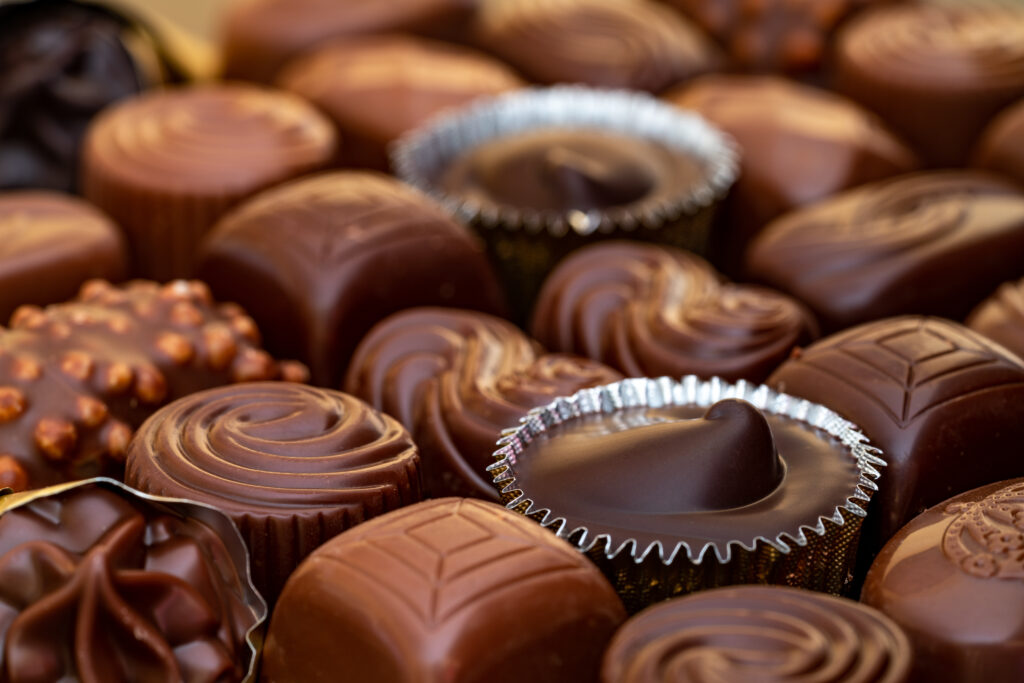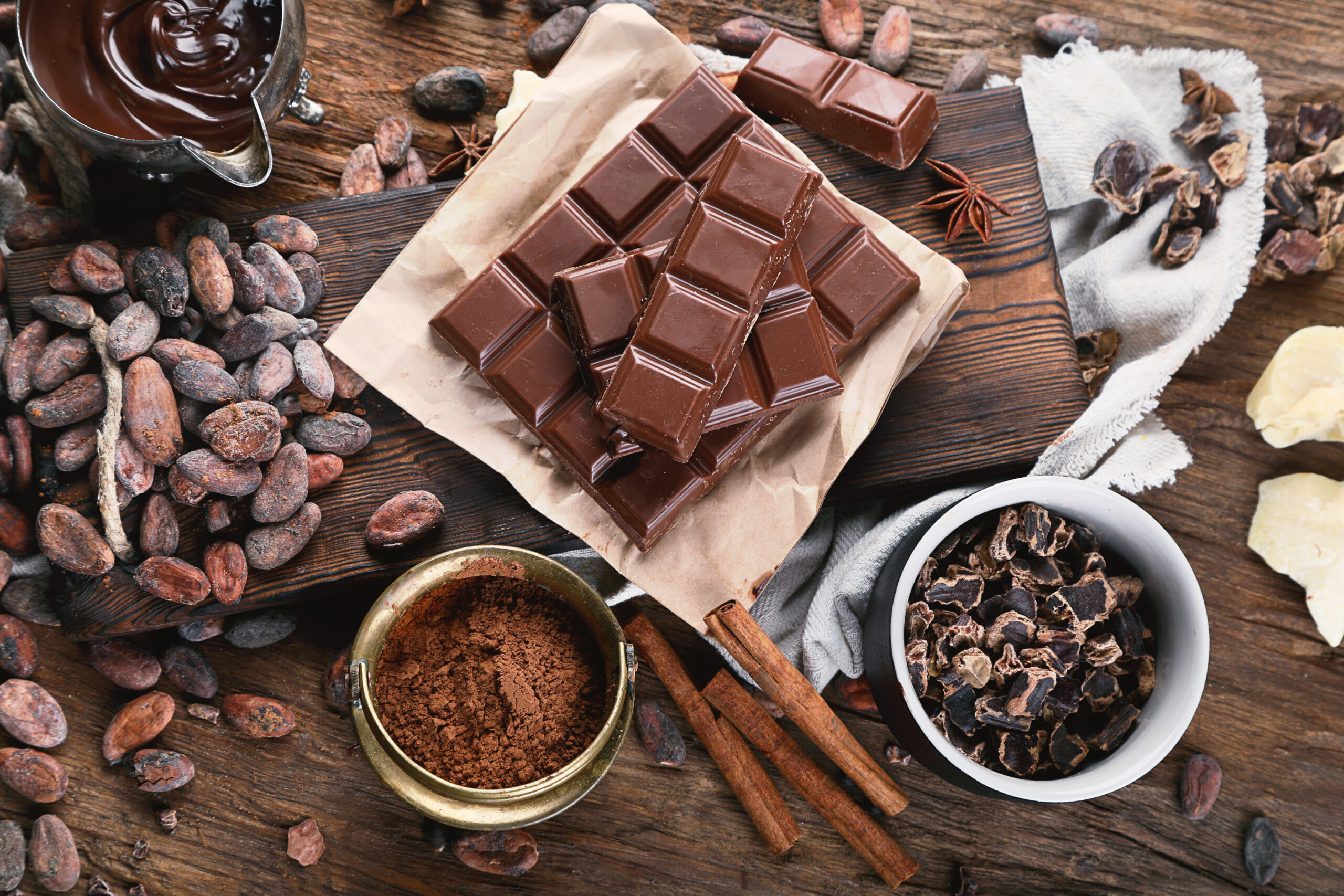Some of the links on this page are affiliate links, which means that Buzzy Kitchen earns commission from purchases made – at absolutely no extra cost to you. Thank you so much for supporting Buzzy Kitchen!
I actually have a very interesting story behind wanting to answer this cooking and food question. If you’ve ever wondered if there was caffeine in chocolate, I’m about to blow open a mystery… except it’s not really that much of a mystery.
Confused? Let me answer those questions for you.
Caffeine in Chocolate: Yes, or No?
In case you weren’t aware, yes, chocolate DOES have caffeine in it.
I recently gave blood in a church. Normally, when you go to these kinds of things, you’re offered a biscuit or a piece of chocolate, and maybe a cup of tea, coffee, juice, or water. There was no tea and coffee, though. I was more than a little disappointed.
“Where’s the tea and coffee?” I asked.
“We can’t have tea and coffee here. The church is for Jehovah’s Witnesses, and they don’t consume caffeine,” the nurse explained.
With a frown, I pointed to the assortment of Club chocolate bars. “But you have chocolate.”
“Yes, and…?” the nurse replied.
“Chocolate has caffeine in it,” I explained.
For a few minutes, she and a couple of other give-blood workers and helpers argued with me, until I finally showed them Google’s results for the question.
“We’d best remove those chocolate bars, then,” they said, grimacing.

How Much Caffeine Is in Chocolate?
The answer to this question depends on a few variables, including the type of chocolate, how much of the chocolate you eat, how it is made, and more.
How Much Caffeine Is in Dark Chocolate?
The amount of caffeine in chocolate goes up the darker it is. Dark chocolate would therefore have more caffeine than milk chocolate. According to the USDA (United States Department of Agriculture):
30 grams (one ounce) of dark chocolate contains 12 milligrams.
How Much Caffeine Is in Milk Chocolate?
According to a medically reviewed article by Healthline:
Milk chocolate contains 9 milligrams of caffeine per 1.55 ounces.
1.55 ounces amounts to just under 44 grams. A hand-sized single bar of Cadbury Dairy Milk weighs 45 grams. So, a Cadbury Dairy Milk bar contains 9 milligrams of caffeine.
How Much Caffeine Is in White Chocolate?
If you want chocolate with no caffeine, you’ll want to eat white chocolate. According to the USDA:
White chocolate contains no caffeine whatsoever.
Zero, nothing, zilch.
| Chocolate | Caffeine Content |
|---|---|
| Dark Chocolate | 17mg per 44g |
| Milk Chocolate | 9mg per 44g |
| White Chocolate | Zero |
What Contains More Caffeine: Chocolate or Coffee?
The answer to this question really does depending on many different variables, but I’ll present a few scenarios to you, so you can get a good idea of how much caffeine you’re really consuming on a regular basis.
Dark Chocolate Bar vs Large Latte
If your chocolate of choice is half a bar of Tony’s Chocolonely Dark Chocolate 70%, and your coffee of choice is a foamy, sweet latte, large in size, the latte would win.
- A large latte contains approximately 154 mg of caffeine.
- Half a bar of the dark chocolate bar contains approximately 35 to 45 mg of caffeine.
Milky Way Bar vs Regular Cappuccino
Let’s say you’ve got one of those two-part Milky Way bars and a regular cappuccino from your local café, the cappuccino would absolutely have more caffeine than the chocolate bar. Quite a lot more, in fact!
- A two-part Milky Way bar contains approximately 6.6 mg of caffeine.
- A regular cappuccino contains approximately 63 mg of caffeine.
White Chocolate vs Decaffeinated Coffee
White chocolate contains the least caffeine out of all the chocolate types, but decaffeinated coffee doesn’t mean absolutely no caffeine in the drink. There’s still some caffeine in it. I didn’t know that before today; did you?
Anyway, back to the subject at hand, your decaffeinated coffee would contain more caffeine than even two or three or even four bars of white chocolate.
- White chocolate contains no caffeine.
- Decaffeinated coffee can still contain up to 7 or 8 mg of caffeine per cup.
